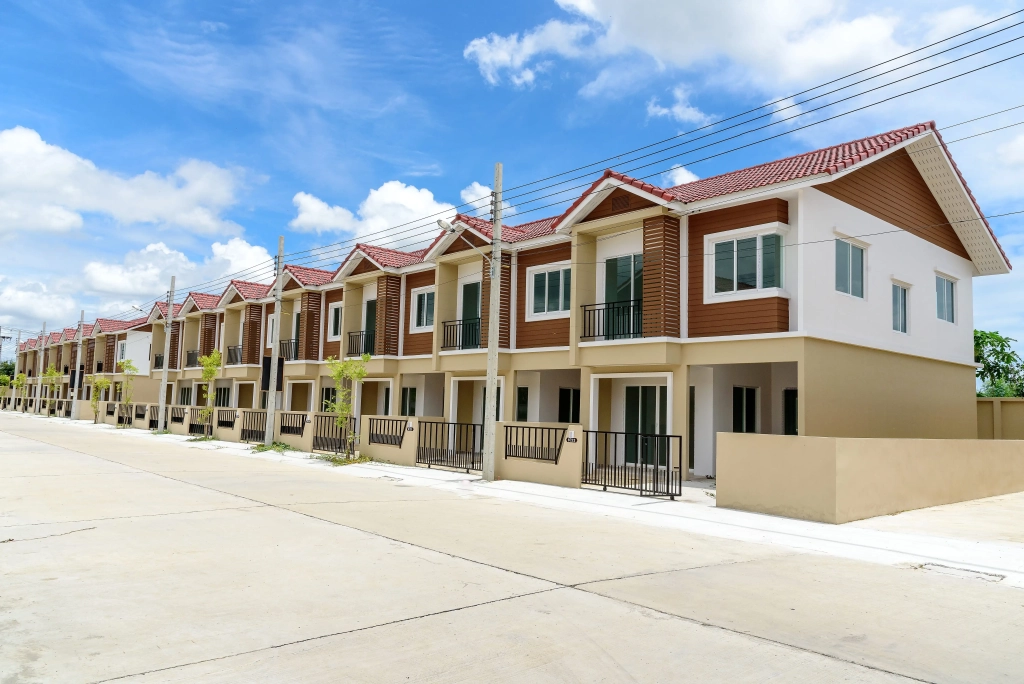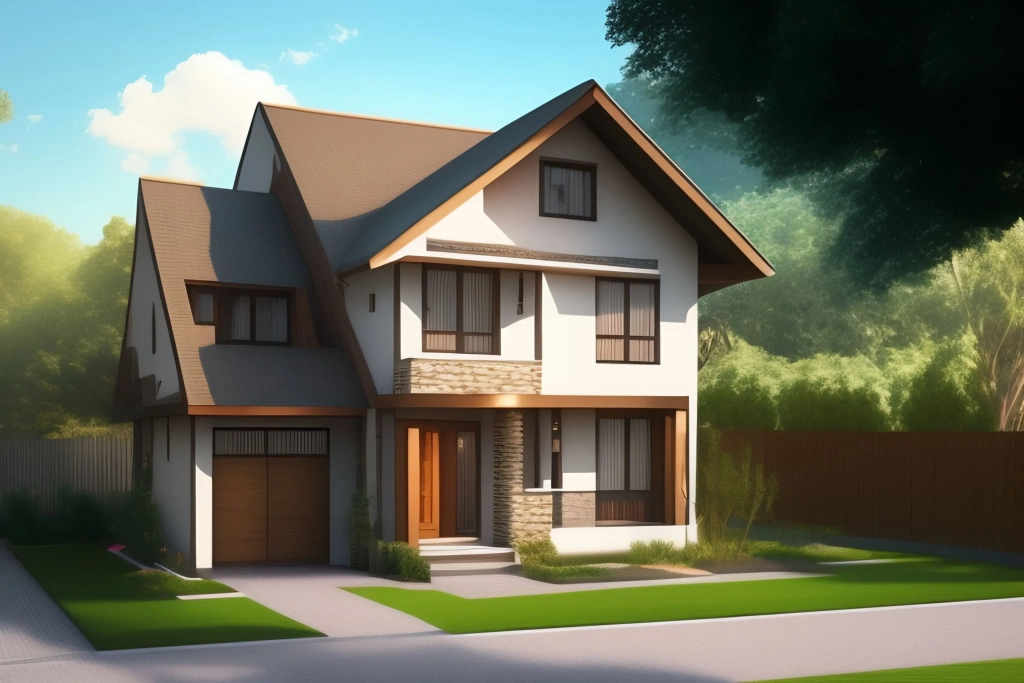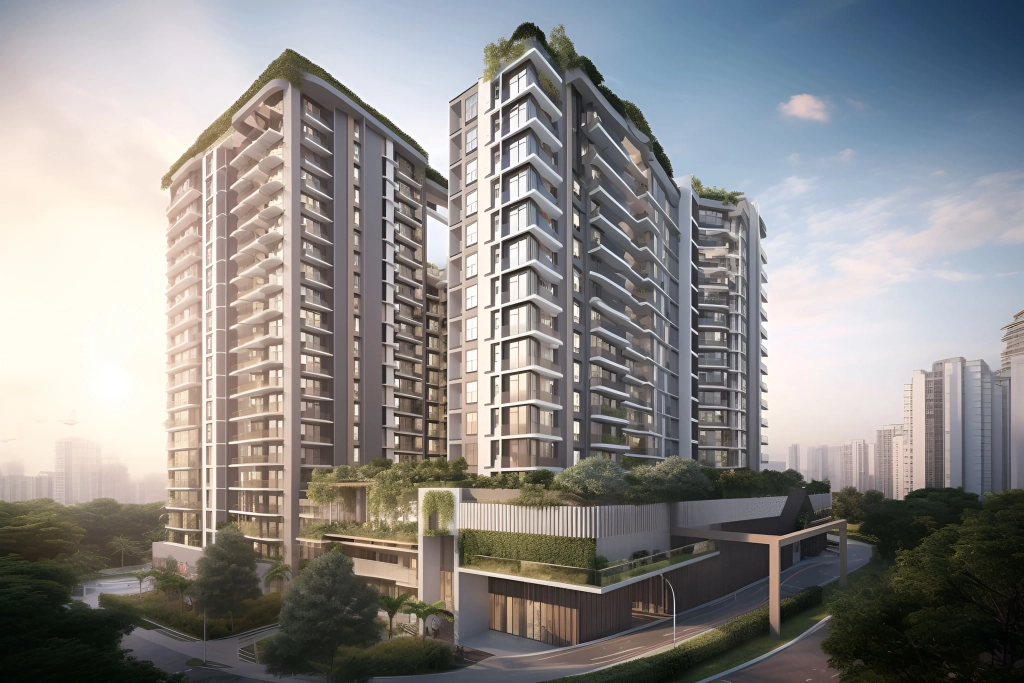Find Your Perfect Match: The Ultimate Guide to Picking Between House, Townhouse, and Condo

Choosing the right type of property to call home is not only a significant financial decision but also a personal one that impacts daily life and long-term satisfaction. Whether you’re a first-time homebuyer or looking to make a change, navigating the diverse options of real estate can be overwhelming. With many choices in the market, such as single-detached houses and lots, townhouses, and condominiums, among the various other housing options, getting started may seem like navigating a labyrinth. Each type of property brings unique benefits, drawbacks, and responsibilities, requiring a fine balance between the practicalities of cost, location, size, and maintenance, alongside emotional connections of comfort, lifestyle aspirations, and community feel.
RELATED: Cultivating Passive Income: Rental Properties for OFWs in the Philippines

Types of Residential Options
The three common types of residential options are single-family homes (detached houses), townhouses, and condominiums. Each has unique characteristics and advantages depending on a person’s lifestyle, budget, and homeownership goals.
Single-family homes, or detached houses, are typically standalone structures located on private parcels of land. Ownership includes both the dwelling and the land it stands on. This ownership type often provides the most privacy and freedom for customization and usually involves higher costs in terms of maintenance and upkeep.
In contrast, townhouses are characterized by shared walls and may be part of a community with shared spaces and amenities. Townhouse owners are generally responsible for exterior maintenance and repair. These types of homes often have a small footprint and modern upgrades and may have lower Homeowners Association (HOA) fees than condominiums due to a lesser focus on shared amenities.
Condominiums can be viewed as a more hands-off approach to homeownership, typically located in multi-unit buildings. Condominium owners only own their individual units, with common areas like gyms, pools, and outdoor spaces owned jointly by all complex residents. For those who desire to become homeowners without dealing with exterior maintenance or landscaping, a condominium may be a more suitable choice.
Factors to Consider when Choosing a Home Type
When considering which type of home to buy, several factors come into play that can significantly affect your decision.
- Lifestyle and Future Plans
Think about your lifestyle needs both now and in the future. Do you plan to grow your family? Are you likely to regularly host friends and family members? Or are you looking for a simpler single or couple living space? Your decisions should align with these considerations.
- Budget and Affordability
Consider not just the price of the home but all related costs: property taxes, homeowner’s association fees, utilities, and maintenance costs. Some types of homes, like condominiums, may have additional regular fees.
- Maintenance and Upkeep
If you enjoy yard work and don’t mind handling your home’s exterior upkeep, a single-family home might be a good fit. But if you’re not keen on maintenance, a condo or townhome, where exterior work is typically handled by the community, might be more suitable.
- Location
Depending on where you want to live, certain types of properties may be more available or affordable. For example, condos are often found in urban settings with access to amenities and public transportation, while single-family homes are more common in suburban areas.
- Privacy
If privacy is a top priority, a single-family home might be more appealing than a townhouse or condo, where you’ll share walls with neighbors.
- Community and Amenities
Some homeowners appreciate the sense of community in townhomes and condos, where shared amenities contribute to a more community-centric living.
- Investment Potential
Certain types of homes might have better resale value depending on the local real estate market, which could be important if you plan to sell your home in a few years.
Each type of housing offers unique benefits that may be more compatible with certain lifestyles and goals. It’s crucial to weigh all factors and decide on the housing type that best fits your needs.

Understanding Different Housing Types
Now that you know what factors to consider, here are the pros and cons of each housing type.
Single Family Homes
Single-family homes, also known as detached houses, are standalone structures that don’t share walls with any other dwellings. They usually come with their private land, providing homeowners with the highest level of independence and privacy in their use and maintenance of the property. These houses often have higher costs, as the owner is responsible for all maintenance and repairs.
Advantages:
- Ownership: When you own a house and lot, you own both the structure and the land on which it’s built, granting you more control over your property.
- Size and Space: Houses tend to offer more space, including outdoor areas such as a backyard, making them ideal for larger families.
- Privacy: Single-family homes usually provide more privacy as they are detached from neighboring units.
- Customization: With a house, you have fewer restrictions on renovations, allowing you to personalize your home and potentially add to its value.
Disadvantages
- Maintenance and Upkeep: Houses typically require more maintenance, given that the property owner is responsible for all exterior, interior, and landscaping tasks. This can include everything from maintaining the surrounding grounds to repairing the roof.
- Higher Costs: Detached houses often come with higher initial costs, as well as increased long-term expenses compared to condos, such as property taxes, insurance, and utility bills.
- Less Access to Amenities: Single-family homes generally do not include access to shared amenities like pools, gyms, or community clubhouses. This means homeowners may need to find and pay for alternatives, such as gym memberships or trips to the local pool.
- Potentially Less Eco-Friendly: Houses often have larger ecological footprints due to greater individual land use, larger structures, and energy consumption.
Townhouses
Townhouses, also known as row houses, are a series of connected but individually owned homes. They typically share side walls with neighboring units but have individual roofs and entrances. While owners usually have some outdoor space, land ownership can vary with some townhouse communities. In many cases, townhouse communities have homeowners’ associations (HOAs) to care for common areas and maintain a uniform appearance among units.
Advantages:
- Lower Upfront and Long-term Costs: Townhouses can have a lower sales price compared to houses, making them a potentially more affordable option.
- Middle Ground: Townhouses can offer a balance between houses and condos, providing a sense of community while still maintaining a degree of privacy.
- Lower Maintenance: In most townhouse arrangements, the Homeowner Association (HOA) often takes on some of the property’s exterior upkeep.
- Amenities: Townhouse communities may come with amenities like a community pool or clubhouse.
Disadvantages
- Lack of Privacy: Townhouses share walls with neighbors, which can reduce privacy and result in potential noise disturbances.
- Limited Outdoor Space: Compared to detached houses, townhouses often have smaller yards or patios, offering less private outdoor space for gardening, entertaining, or leisure activities.
- Homeowners Association (HOA) Fees and Rules: Many townhouse communities have an HOA governing property maintenance and community rules. This usually involves paying monthly or annual fees for amenities, shared spaces, and exterior care but can also include restrictions on renovations, pets, and leasing, limiting homeowners’ control over their property.
- Parking Limitations: Some townhouse communities may have limited parking spaces or shared garages. This can lead to competition for spaces and inconvenience for residents with multiple vehicles or frequent visitors.
- Resale and Appreciation Potential: If in the future you put your townhouse for sale, it may have a lower resale value or appreciation rate compared to detached homes in similar neighborhoods. This can affect the long-term return on investment for homeowners in the future.
- Less Customization: Townhomes often come in standard designs and floor plans, with limited options for personalization and customization compared to detached houses.
- Noise and Disputes: Living in close proximity to neighbors can lead to disputes and disagreements over shared spaces, noise, or other issues.

Condominiums
A condominium, or condo for short, is a type of living space that is privately owned within a larger structure or community. The common areas and amenities (like a pool, gym, or parking garages) are co-owned by all the unit owners, and maintenance is handled by a condominium association. Condos offer homeownership in high-demand areas where it might otherwise be unaffordable but often involve monthly HOA fees in addition to mortgage payments.
Advantages:
- Affordability: Condominiums are generally less expensive than homes, making them a feasible option for first-time buyers or those on a tighter budget.
- Low Maintenance: Condo owners typically pay a monthly fee that covers maintenance for common areas and shared facilities, relieving owners from handling tasks like landscaping and exterior repairs.
- Amenities: Condominium complexes often provide amenities such as a gym, swimming pool, or clubhouse, which can enhance one’s quality of life without additional costs.
- Security: Condos usually have better security features like surveillance cameras, doormen, or gated entrances, providing a safer living environment
- Potential source for passive income: Investing and putting up a condo for rent can provide you with passive income especially if the building is located at a prime location near a central business district with many young working professionals
Disadvantages
- Monthly Fees: Condos come with monthly homeowners association (HOA) or maintenance fees, which cover shared amenities, communal area maintenance, and sometimes utilities. These fees can be costly and may increase over time.
- Lack of Privacy: Living in a condominium typically involves sharing walls, floors, and ceilings with neighbors, which can result in reduced privacy and potential noise disturbances.
- Less Control and Flexibility: Condo owners must adhere to the rules established by the HOA, which often have restrictions on renovations, pets, or leasing policies. Additionally, common architectural designs and guidelines for the community may limit personalization.
- Potential for Disagreements: Involvement in an HOA can lead to disagreements with condo management or neighbors regarding building policies, fees, or services.
Tips for Making the Right Choice
Once you’ve decided to buy a home, the next step is to find the right one. Here are some tips for making sure that your search goes smoothly and ends with a house that matches all of your needs:
- Get Pre-Approved for a Mortgage
A mortgage pre-approval shows sellers that you are a serious buyer and provides a more accurate idea of your budget for the home search. This also puts you at an advantage when competing with other potential buyers as soon as you find an ideal house for sale.
- Make a List of Must-Haves and Nice-to-Haves
Determine which features are essential for your new home, such as a certain number of bedrooms, a garage, or proximity to work. Also, list desirable features that aren’t necessarily deal-breakers.
- Utilize Online Resources
Leverage online home search websites and apps to view any condo or house and lot for sale, explore neighborhoods, and compare properties. Online search tools can help you save time by narrowing down potential listings.
- Work with a Real Estate Agent
A knowledgeable real estate agent can provide valuable insights about the local market, assist in finding properties that fit your needs, and guide you through the negotiation and closing processes.
- Attend Open Houses and Schedule Showings
Visit open houses and schedule private showings to get a firsthand impression of homes on your shortlist. Pay attention to the property’s condition, potential issues, and how it compares to your must-have and nice-to-have lists.
- Take Notes and Photos
During visits, take notes and photos to help remember each property’s features, pros, and cons. This documentation will be useful when comparing and discussing options with your real estate agent or family members.
- Be Patient and Open-Minded
Finding the perfect home may take time. Be patient and keep an open mind as you sift through listings and visit properties. Remain flexible about your criteria, and be prepared to make compromises.
- Be Ready to Act Quickly
When you find a home that checks all the boxes, move quickly to make an offer. In competitive markets, desirable properties can receive multiple offers, so it’s crucial to act fast.
Finally, remember that there are no universally “right” or “wrong” choices; it all depends on your family’s needs, your budget, and your personal preferences. Be patient and flexible during the search process, as finding your perfect match may involve compromises and unforeseen challenges. Residential properties come in many different forms. Each one has their own benefits and drawbacks, but they all have something in common: they’re all great investment properties if you know what to look for.
Read more here: AllProperties Latest Blogs




